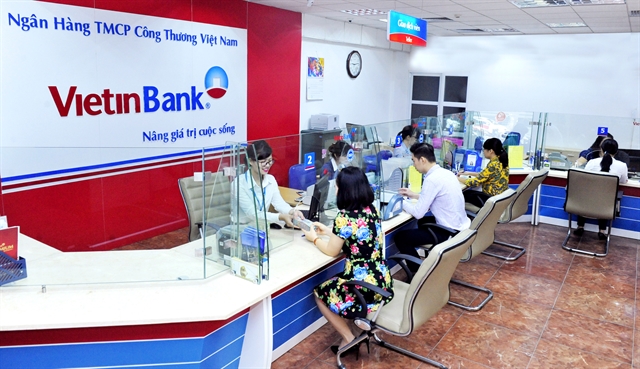The State Bank of Viet Nam (SBV) has urged relevant ministries to revise regulations allowing State-owned commercial banks to use the State budget to hike capital.

The State Bank of Viet Nam (SBV) has continued to urge relevant ministries to revise legal frameworks in order to allow large State-owned commercial banks to use the State budget for their capital increases.
Under a report sent to the National Assembly late last month, the central bank proposed the Ministry of Finance, in conjunction with the Ministry of Planning and Investment, study and revise Decree No. 32/2018 ND-CP on State capital investment in enterprises and the use and management of capital and assets in enterprises as the regulation currently prohibits the use of the State budget to invest in enterprises.
The ministries should study the issue and advise the Prime Minister and the Government on a proposal to submit to the National Assembly for consideration, amendment and issuance of a new resolution on allowing the use of State budget to increase charter capital for State-owned commercial banks (excluding banks that are poor-performing and acquired compulsorily by the central bank), the SBV suggested.
This was not the first time the central bank has proposed the use of the State budget to increase charter capital for State-owned commercial banks. Previously, at some conferences, SBV also proposed using State budget to raise capital for banks in dire need of capital to follow the central bank’s plan for them to meet global capital safety regulations in 2020.
The banks – including BIDV, VietinBank, Agribank and Vietcombank – are under great pressure to hike capital to satisfy Basel II standards, which are recommendations on banking laws and regulations issued by the Basel Committee on Banking Supervision. Under SBV’s regulations, banks must maintain a capital adequacy ratio (CAR) of at least 8 per cent as per Basel II norms starting in 2020. The CAR of State-owned banks will fail to reach the minimum level set by the SBV if they fail to increase capital.
Raising capital has been a struggle for Vietnamese banks in recent years. Major State-owned banks such as BIDV and Vietinbank have long tried in vain to increase charter capital.
BIDV, the second largest listed bank, has charter capital of nearly VND34.19 trillion (US$1.46 billion) – unchanged since 2015.
Vietinbank, the fourth largest listed bank, has seen its capital remain unchanged since 2014 at VND37.23 trillion.
Only Vietcombank, the largest listed bank in the country, last month raised VND6.2 trillion from selling a 3 per cent stake to foreign investors as part of its plan to ultimately sell 10 per cent.
Fitch Ratings estimated the Vietnamese banking system could face a capital shortfall of almost $20 billion, equal to 9 per cent of GDP, to meet Basel II and increase allowance coverage to a level that reflects underlying asset-quality problems.
Fitch forecast banks were likely to step up capital issuance over the coming months, which could improve the credit profiles of rated banks if it resulted in a meaningful and sustained increase in capitalisation. However, a lack of depth in the domestic capital market could create challenges, particularly as some banks were close to or at the limit for foreign ownership.
Moody’s also noted that most Vietnamese banks would still lack sufficient capital to meet the Basel II requirements, so raising capital – primarily from foreign investors due to the underdevelopment of the domestic capital market – would be a key focus for banks in 2019.
Moody’s points out that despite the banks’ improved financial health, greater competition to attract private investments would make it more challenging for Vietnamese banks to raise capital in 2019.
To raise capital, the four State-owned banks have also asked the Government to allow them to either retain their profits or pay dividends in shares rather than cash until 2020, enabling them to meet Basel II standards as required by the central bank. — VNS





